Noise opens with a young woman, Ju-hee (Han Soo-a) staring with widened terror filled eyes at the ceiling above her. Her breathing is erratic and her movements distressed. She screams to her neighbors above her to stop making so much noise, begging them for silence and peace. Ju-hee is overcome with panic as the eerie distorted sounds emanating from the walls seem to close in on her, and the screen fades to black.
(Photo courtesy of Finecut Co., Ltd.)
Next we’re introduced to another, slightly older young woman working on the processing line of a busy factory. She’s tapped on the shoulder by her supervisor who gestures that she has a phone call waiting. As she nods her head in acknowledgement and walks off the factory floor, she places a small device in her ear, and as the audio is filled with the racketing cacophony of dozens of machines working in tandem, you realise that she’s the only person not wearing noise canceling headphones.
The young woman, Joo-young (Lee Sun-bin) is told that her sister, Ju-hee hasn’t been seen by her sister’s boyfriend Ki-hoon (Kim Min-suk) for days and he’s worried. When Joo-young enters the apartment she bought with Ju-hee, but strangely doesn’t seem to spend much time in, the room is dark and you even get the sense there’s a musky, decaying odor permeating in the air (which kudos to the production team for translating that so well). On the ceiling and walls dozens of black soundproofing mats have been stuck, and a fine layer of dust covers various surfaces.
As Joo-young searches through the rooms she finds signs of disarray, as through Ju-hee tossed things around in frustration. On the dining table sits a cake with spots of green mold and frosting wishing Joo-young happy birthday, and a container of congealed japchae. Each new revelation of a piece of Ju-hee’s life indicates that something is drastically wrong, and it starts to become evident that the sisters may not have been as close as they once were.
Joo-young finds her sister’s phone on which are dozens of audio recordings of Ju-hee screaming at night terrors that only she’s able to see and hear. Also on the table is another hearing aid, but this one belongs to Ju-hee. Out of curiosity and perhaps hope that it could provide an answer to what happened, Joo-young places the device in her ear and is met with screeching distorted screams and weird sounds that raise the hair on your arms. Sounds, noises that the audience isn’t hearing when Joo-young isn’t wearing it.
There’s many scenes and sequences like this throughout the film where director Kim Soo-jin places the audiences in the position of Joo-young, and at times Ju-hee. We hear what they’re able to hear with and without the devices, providing a perspective of deaf and hard of hearing characters not often done in film. Other films where this is done excellently is the 2019 Oscar winning film The Sound of Metal by Darius Marder, and more recently the 2025 coming of age feature The Way We Talk by Hong Kong filmmaker Adam Wong.
(Photo curtesy of Finecut Co., Ltd.)
Desperate to find her sister, Joo-young goes to the apartment building’s management office to inquire about her missing sister, but there she’s met with apathy and even annoyance tinged with aggression from the supervisor and security guard. She’s told that her sister isn’t a priority because they’re more interested in the new development deal being made.
At the police station, the officers treat Joo-young more with suspicion about her own movements than interest and concern for the missing young woman’s wellbeing. When speaking with Ju-hee neighbours no one seems to know anything about her and express their ire at being inconvenienced having to answer questions from a stranger and what negative effects a police investigation could have for the development deal. This selfishness is a repeated theme in Noise, a horror film set in an apartment building where every little sound made is a reminder that we’re not living alone.
It’s interesting that Soo-jin uses noise not only as a method of torment for our two female lead characters, but also as a narrative device to address the increasing culture of individualism in South Korea, and I think by extension the world. He makes it a point to show how times have changed from neighbours congregating to talk with each other about the random happenings in their homes, communities, and society, to aimlessly moving around each other, moving through life like ghosts who have no interest in the lives of the people they’re sharing so much of their space and time with.
The noises being made outside the apartment building don’t come from children playing or old people gossiping and having fun playing their own traditional games. The noises come from traffic, the constant sound of construction, and the distorted feedback of a microphone being spoken into at a meeting to discuss the tenants holding out on agreeing to having their homes torn down.
Another way that Soo-jin references the growing distance between people is the use of apartment numbers to identify each other. Ju-hee is referred to by her unit number, 604, in her recordings she speaks about being disturbed by the never ending noise from 704, and Joo-young has her own terrifying encounters with the downstairs neighbour, 504. No one seems to know anyone’s name or cares to use them anymore.
What makes Noise work as a true horror film isn’t just the truly unnerving sound design by Park Young, ki, the creepy production design Ko Seung-hyo, it’s the terrific performances by Lee Sun-bin (Sumbisori), Han Soo-a (Penthouse), and Ryu Kyung-soo (Broker) as increasingly obsessed tenant 504 with whom both sisters have terrifying encounters that no one else seems to hear, see, or care about.
Following up her performance in Sumbisori with Noise, Lee shows her acting chops and flexibility by playing characters of completely disparate experiences and personalities. The journey she and Soo-bin take Joo-young on is impressive and in some ways heart breaking with an end that deserves not to be spoiled because the film offers one of my favourite plot twists– and use of a cellphone app–of the year
Noise had its North American premiere at the 2025 Fantasia International Film Festival in the Selection 2025 program. It was an Official Selection at the SITGES – International Fantastic Film Festival of Catalonia 2024, KOSMORAMA Trondheim International Film Festival 2025, and Florence Korea Film Festival 2025.
(Photo courtesy of Finecut Co., Ltd.)
In my interview with Soo-jin during Fantasia, he spoke about carefully selecting his lead actresses for their ability to convey all of the intense emotions their characters experienced, making Ju-hee and Joo-young’s disability and integral part of the narrative, and working with cinematographer Jun Hong-kyu, composer Heo Jun-hyeok, and sound designer Park Young-ki to create the film’s visually and auditorially oppressive atmosphere.
Carolyn Hinds
Freelance Film Critic, Journalist, Podcaster & YouTuber
African American Film Critics Association Member, Tomatometer-Approved Critic
Host & Producer Carolyn Talks…, and So Here’s What Happened! Podcast
Bylines at Authory.com/CarolynHinds
Twitter & Instagram: @CarrieCnh12
#NOISE #FantasiaIFF2025KCrushInterviewwithKimSoojin #filmmaker #kcrush #filmscreening #filmcoverage #filmreview #kcrushamerica #kcrushmagazine #KimSoojin #JunHongkyu #cinematographer #composerHeoJunhyeok #ParkYoungkisounddesigner #horrorfilm #eardevice #hearingsounds #hardofhearing #neighborsdisconnection #nolongerknowingneighbors #knownbyapartmentnumbers #KoreanhorrorfilmatFantasiaIFF2025 #noiseinourhomes

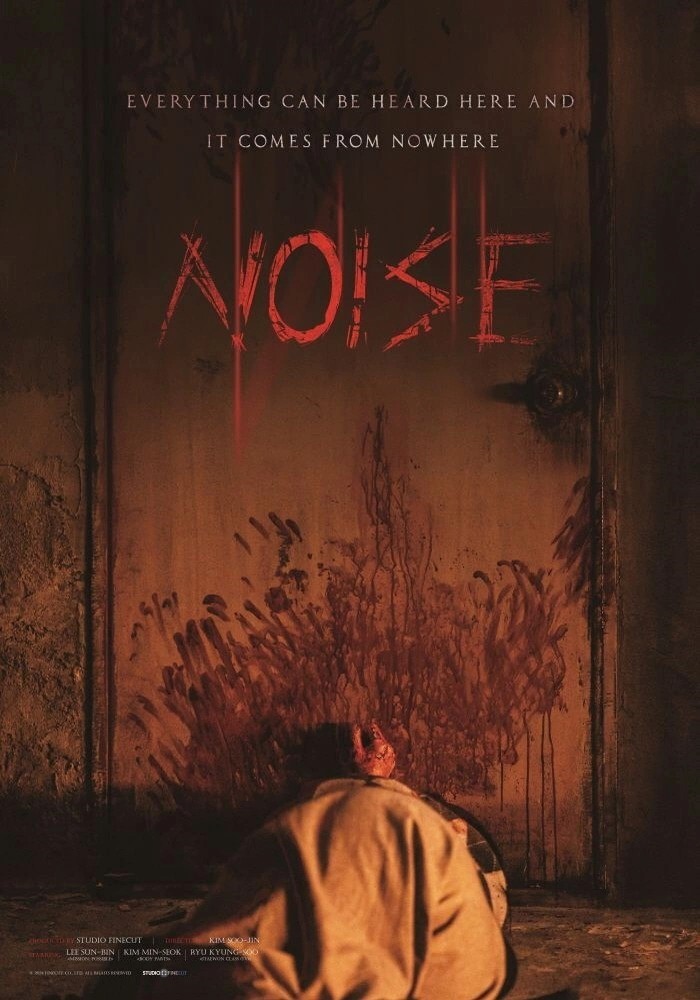
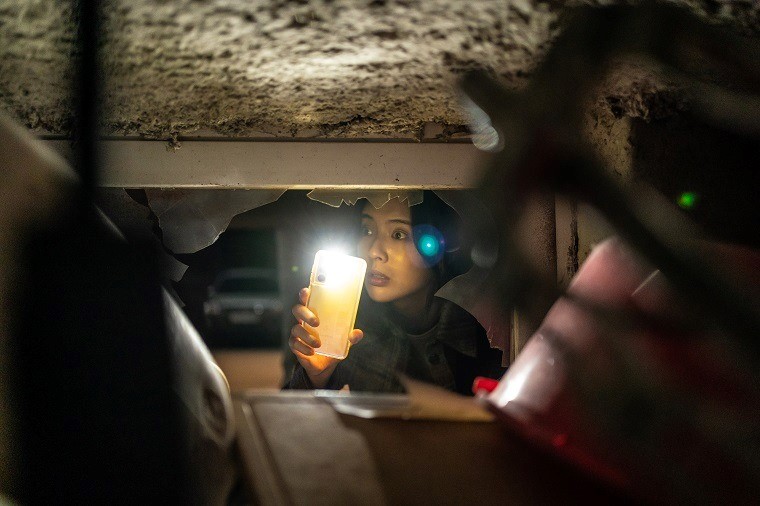
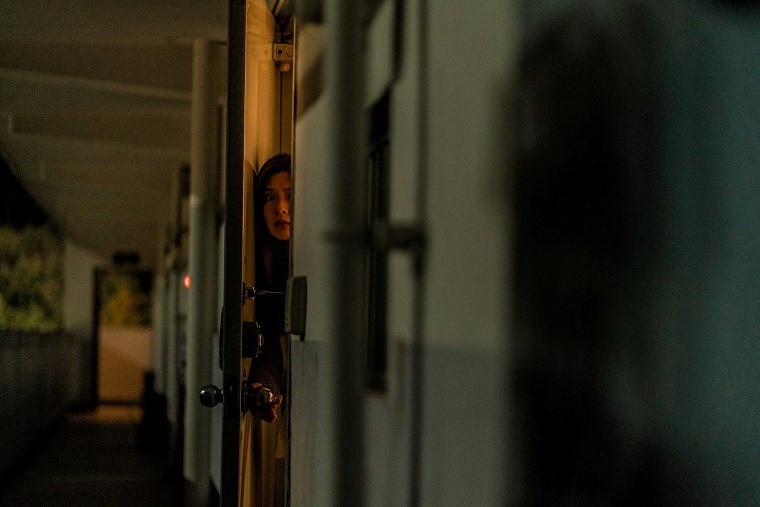
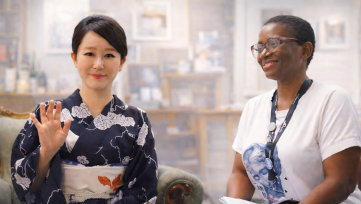

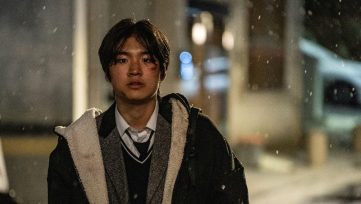

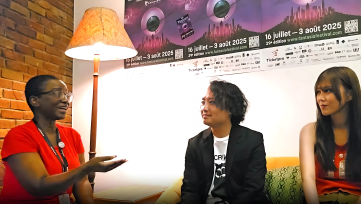





Leave a Reply